Following the money: Who may be affected by Publix stopping political donations?

Despite supporters standing by them with a “#SupportPublix” movement. Publix supermarkets announced that they are suspending political contributions in response to a “die in” protest led by some Parkland school shooting survivors. Who might this affect in Alabama? According to Alabama’s Secretary of State’s contribution records Publix has given a total of $77,420 in political contributions since 2013. That is significantly lower than their massive $2,000,000 plus in contributions this cycle alone in the state of Florida where their headquarters are based. Of their money most went to the Alabama Retailers PAC which received $35,920. The Alabama Grocers Association which received $21,500, Alabama 2014 PAC (A conservative PAC run by Bob Reily) got $10,000 and COMP PAC (A workers compensation PAC) received $10,000. Who is Alabama Retail PAC endorsing this cycle? They just released their full list. For the state’s constitutional offices, RetailPAC endorses: Governor Kay Ivey* Lieutenant Governor: Twinkle Cavanaugh Attorney General Steve Marshall* Secretary of State John Merrill* State Treasurer: John McMillan For the Grocers Association? Their full list is on their website. For constitutional offices candidates endorsed by SACKPAC are: Governor – Kay Ivey (R) Lieutenant Governor – Twinkle Andress Cavanaugh (R) Attorney General – Steve Marshall (R) Secretary of State – John Merrill (R) Treasurer – John McMillan (R) Commissioner, Alabama Department of Agriculture & Industries – Rick Pate (R) We will continue following the Publix contributions story and will be updating the site with additional news as it breaks.
More LGBT issues loom as justices near wedding cake decision

A flood of lawsuits over LGBT rights is making its way through courts and will continue, no matter the outcome in the Supreme Court’s highly anticipated decision in the case of a Colorado baker who would not create a wedding cake for a same-sex couple. Courts are engaged in two broad types of cases on this issue, weighing whether sex discrimination laws apply to LGBT people and also whether businesses can assert religious objections to avoid complying with anti-discrimination measures in serving customers, hiring and firing employees, providing health care and placing children with foster or adoptive parents. The outcome of baker Jack Phillips’ fight at the Supreme Court could indicate how willing the justices are to carve out exceptions to anti-discrimination laws; that’s something the court has refused to do in the areas of race and sex. The result was hard to predict based on arguments in December. But however the justices rule, it won’t be their last word on the topic. Religious conservatives have gotten a big boost from the Trump administration, which has taken a more restrictive view of LGBT rights and intervened on their side in several cases, including Phillips’. “There is a constellation of hugely significant cases that are likely to be heard by the court in the near future and those are going to significantly shape the legal landscape going forward,” said Shannon Minter, legal director of the National Center for Lesbian Rights. Several legal disputes are pending over wedding services, similar to the Phillips case. Video producers, graphic artists and florists are among business owners who say they oppose same-sex marriage on religious grounds and don’t want to participate in same-sex weddings. They live in the 21 states that have anti-discrimination laws that specifically include gay and lesbian people. In California and Texas, courts are dealing with lawsuits over the refusal of hospitals, citing religious beliefs, to perform hysterectomies on people transitioning from female to male. In Michigan, the American Civil Liberties Union filed suit against the state’s practice of allowing faith-based child placement agencies to reject same-sex couples. Advocates of both sides see the essence of these cases in starkly different terms. “What the religious right is asking for is a new rule specific to same-sex couples that would not only affect same-sex couples but also carve a hole in nondiscrimination laws that could affect all communities,” said Camilla Taylor, director of constitutional litigation at Lambda Legal, which supports civil rights for LGBT people. Jim Campbell of the Christian public interest law firm Alliance Defending Freedom said the cases will determine whether “people like Jack Phillips who believe marriage is the union of a man and a woman, that they too have a legitimate place in public life. Or does he have to hide or ignore those beliefs when he’s participating in the public square?” ADF represents Phillips at the Supreme Court. The other category of cases concerns protections for LGBT people under civil rights law. One case expected to reach the court this summer involves a Michigan funeral home that fired an employee who disclosed that she was transitioning from male to female and dressed as a woman. The 6th U.S. Circuit Court of Appeals ruled that the firing constituted sex discrimination under federal civil rights law. That court is one of several that have applied anti-sex discrimination provisions to transgender people, but the Supreme Court has yet to take up a case. The funeral home argues in part that Congress was not thinking about transgender people when it included sex discrimination in Title VII of the 1964 Civil Rights Act. A trial judge had ruled for the funeral home, saying it was entitled to a religious exemption from the civil rights law. “Congress has not weighed in to say sex includes gender identity. We should certainly make sure that’s a conscious choice of Congress and not just the overexpansion of the law by courts,” Campbell said. ADF also represents the funeral home. In just the past week, two federal courts ruled in favor of transgender students who want to use school facilities that correspond to their sexual identity. Those cases turn on whether the prohibition on sex discrimination in education applies to transgender people. Appeals in both cases are possible. In the past 13 months, federal appeals courts in Chicago and New York also have ruled that gay and lesbian employees are entitled to protection from discrimination under Title VII. Those courts overruled earlier decisions. Title VII does not specifically mention sexual orientation, but the courts said it was covered under the ban on sex bias. The Obama administration had supported treating LGBT discrimination claims as sex discrimination, but the Trump administration has changed course. In the New York case, for instance, the Trump administration filed a legal brief arguing that Title VII was not intended to provide protections to gay workers. It also withdrew Obama-era guidance to educators to treat claims of transgender students as sex discrimination. There is no appeal pending or expected on the sexual orientation issue, and there is no guarantee that the court will take up the funeral home’s appeal over transgender discrimination. The trend in the lower courts has been in favor of extending civil rights protections to LGBT employees and students. Their prospects at the Supreme Court may be harder to discern, not least because it’s unclear whether the court’s composition will change soon. Justice Anthony Kennedy, 81, has been the subject of retirement speculation, though he has not indicated he is planning to retire. When Justice Stephen Breyer turns 80 in August, he will join Kennedy and Justice Ruth Bader Ginsburg, 85, as octogenarians on the bench. If President Donald Trump were to replace any of those justices, the court probably would be much less receptive to LGBT rights. Even the landmark gay marriage ruling in 2015 that Kennedy wrote was a 5-4 decision. “We’re very concerned about the composition of the federal bench. Under the Trump administration, we’ve seen a
Rudy Giuliani says White House wants briefing on classified info
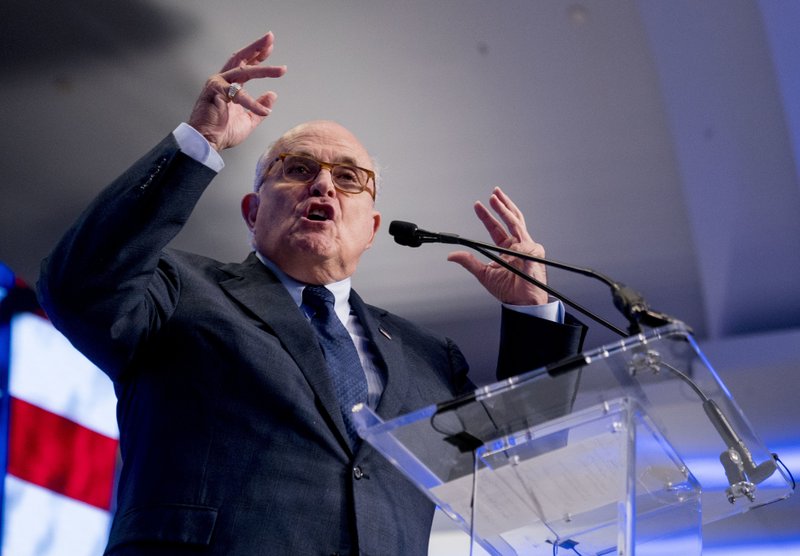
President Donald Trump’s legal team wants a briefing on the classified information shared with lawmakers about the origins of the FBI investigation into Russia’s meddling in the 2016 presidential election. And they may take it to the Justice Department as part of an effort to scuttle the ongoing special counsel probe. Rudy Giuliani, one of Trump’s attorneys, told The Associated Press on Friday that the White House hopes to get a readout of the information next week, particularly about the use of a longtime government informant who approached members of Trump’s campaign in a possible bid to glean intelligence on Russian efforts to sway the election. Trump has made unproven claims of FBI misconduct and political bias and has denounced the asset as “a spy.” Republished with the permission of the Associated Press.
Doug Jones introduces bill to improve rural health care
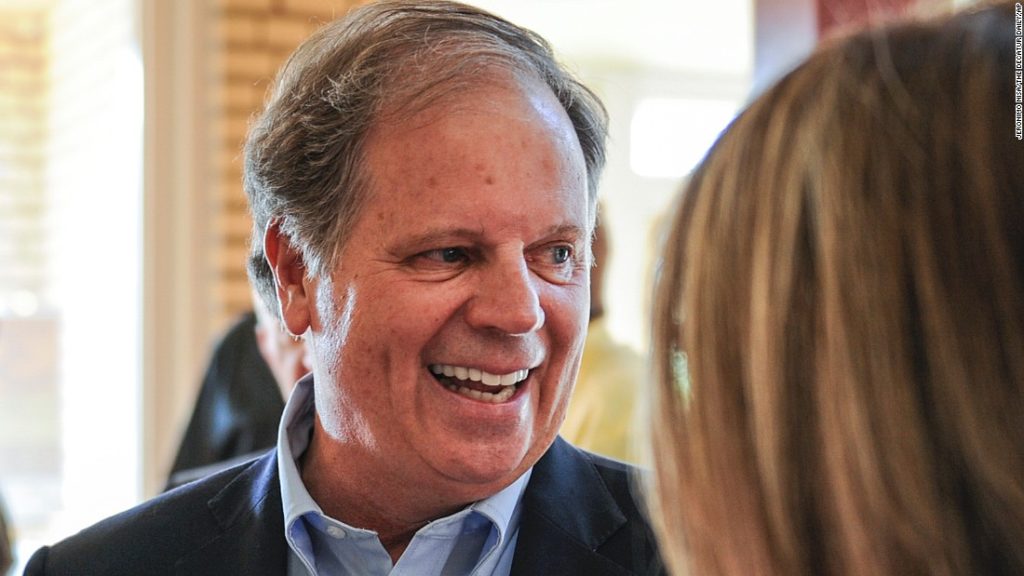
Alabama Sen. Doug Jones introduced his first piece of legislation on Tuesday, aimed at improving communications and coordination between federal agencies and health care stakeholders. The bill known as the Rural Health Liaison Act, would create the position of rural health liaison within the United States Department of Agriculture (USDA.) According to Jones, the liaison would: Consult with the Department of HHS on rural health issues and improve communication with all federal agencies Provide expertise on rural health care issues Lead and coordinate strategic planning on rural health activities within the USDA Advocate on behalf of the health care and relevant infrastructure needs in rural areas Provide updates on rural grant opportunities and other programs to stakeholders Provide technical assistance and guidance on rural health to the USDA extension and county offices Jones believes the legislation will streamline the government, and make it more efficient, ensuring rural hospitals in Alabama have access to the resources they need to provide affordable health care in their communities. “Like many states with large rural communities, Alabama faces unique challenges when it comes to providing access to health care for all of our residents,” said Jones. “I’m proud that the first bill I’m introducing as a lead sponsor will help address an issue that affects so many people in my state and across rural America. By establishing a rural health liaison at USDA, we can better coordinate federal resources and expand health care access to Americans who have for too long struggled to receive quality, affordable care in their own communities.” Since 2010, 80 rural hospitals in the nation have closed and 673 are at risk of closing, twelve of those hospital closures took place in Alabama. Resulting in a loss of over 6,000 jobs, and over $713 million in Alabama GDP in the last ten years. “As much as anything, going around the state over the last 12 months, health care has been a driving issue for people in Alabama from one end of the state to the other, and particularly rural health care,” Jones told AL.com. “The health care delivery in rural parts of Alabama are critical, and making sure that people have access to affordable health care is a lifeblood in a number of communities.”
Donald Trump says illegal crossings down; they’re up

Illegal border crossings, as President Donald Trump measures them, have gone up since he took office, even as he speaks to audiences about a drop of more than 40 percent. That disconnect was among several that stood out over the past week as he opened up on the Russia investigation via Twitter, forsaking accuracy in the process, and made the false claim that he’s delivering the first big military pay increase in a decade. A look at some of his statements: TRUMP: “We’ve done a lot of work on the wall. We’re doing a lot of work on security, generally speaking, security and border — border security. The border’s down over 40 percent, and don’t forget, we have a great economy, probably the best economy the country’s ever had. So people come across, but we’re going to get the rest.” — interview broadcast Thursday with “Fox & Friends.” TRUMP: “We’re down on immigration crossing the border — more than 40 percent.” — forum Wednesday in Bethpage, New York. THE FACTS: Illegal crossings actually are up 20 percent since he became president, according to the yardstick he uses to measure them — the number of Border Patrol arrests. There is no precise measure of illegal crossings because some people don’t get caught. The Trump administration uses arrests as the best gauge of whether crossings are going up or down. The Obama administration did likewise. Border Patrol arrests did fall last year to the lowest level since 1971. But since April of last year, arrests have climbed steadily. One factor in that increase may be that people are now taking their chances to cross into the U.S. illegally after an initial wait-and-see attitude about Trump’s tough-talking approach to people sneaking into the country. Last month, there were more than 50,000 overall border arrests, which are made up of people who are stopped at land crossings and other official points of entry, according to federal data. That was more than triple the number from April 2017, which was the lowest tally on record since the Homeland Security Department was created in 2003. Overall, border arrests have increased 20 percent since January 2017, from 42,463 in January 2017 to 50,924 in April. ___ TRUMP, to U.S. Naval Academy graduates: “Going to have new equipment and well-deserved pay raises. We just got you a big pay raise. First time in 10 years. We got you a big pay increase. First time in over 10 years. I fought for you. That was the hardest one to get, but you never had a chance of losing.” — speech Friday. THE FACTS: That’s not right. U.S. military members have gotten a pay raise every year for the past 10 years and several have been larger than this year’s 2.6 percent increase. Pay increases in 2008, 2009 and 2010, for example, were all 3.4 percent or more. ___ TRUMP: “We have now the lowest number of ships that we’ve had since World War I, and very soon you’re going to get to 355 beautiful ships. 355. That’s almost a couple of hundred more ships.” — speech to academy graduates Friday. THE FACTS: No it isn’t. The Navy now has 283 ships. ___ TRUMP on former CIA Director John Brennan: “Brennan started this entire debacle about President Trump. We now know that Brennan had detailed knowledge of the (phony) Dossier…he knows about the Dossier, he denies knowledge of the Dossier, he briefs the Gang of 8 on the Hill about the Dossier, which…….they then used to start an investigation about Trump…” — tweets Monday. THE FACTS: Trump quotes conservative commentator Dan Bongino to falsely claim the Russia probe is based on a “phony dossier.” In fact, the FBI’s investigation began months before it received a dossier of anti-Trump research financed by the Democratic Party and Hillary Clinton’s campaign. The FBI probe’s origins were based on other evidence — not the existence of the dossier. The Republican-controlled House intelligence committee found the Russia probe was initiated after the FBI received information related to Trump campaign foreign policy adviser George Papadopoulos, not the dossier. The committee’s final report released in March was praised by Trump, who pointed to it as evidence that the investigation was nothing but a “witch hunt.” ___ TRUMP, on President Barack Obama’s national intelligence director, James Clapper: “Clapper has now admitted that there was Spying in my campaign. Large dollars were paid to the Spy, far beyond normal. Starting to look like one of the biggest political scandals in U.S. history. SPYGATE – a terrible thing!” — tweet Thursday THE FACTS: That’s a distortion of Clapper’s statements on ABC’s “The View” on Tuesday when he was asked about recent reports that an FBI informant spoke with several members of the Trump campaign. “They were spying on — a term I don’t particularly like but — what the Russians were doing,” Clapper said. “Trying to understand, were the Russians infiltrating? Trying to gain access, trying to gain leverage and influence? Which is what they do.” He did not say a spy was implanted “in” the campaign and he denied the FBI was spying “on” the campaign. The effort was focused on Russians, he said, was meant to “protect the campaign” and the U.S. political system. Special counsel Robert Mueller’s investigation is looking into Russian interference in the election, any collusion between Russia and the Trump campaign, possible obstruction of justice and whatever associated criminal activity might be uncovered. The probe has produced several criminal convictions of Trump campaign officials. Those charges do not implicate the president directly. Republished with the permission of the Associated Press.
Some Alabama women feel left behind by the #MeToo movement
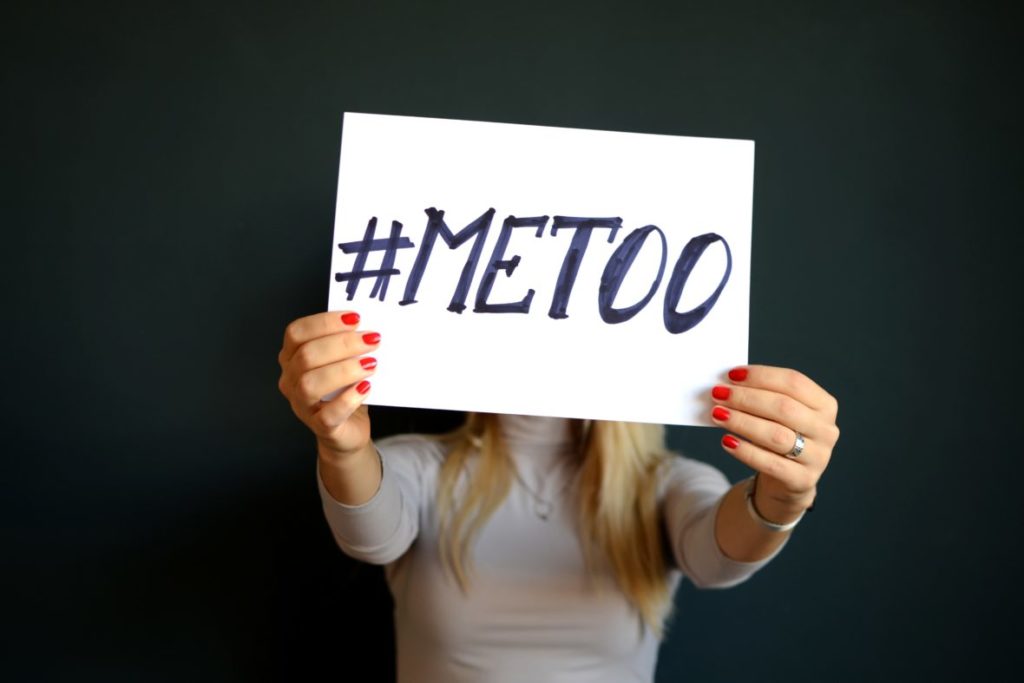
Some women in Alabama have a hard time identifying with #MeToo, a movement they feel often doesn’t leave space for conservative women’s voices. Elizabeth Sheth of Huntsville is one of two women engineers in her office, a mother of three and a conservative Christian. She thinks the #MeToo movement is important, but believes it sometimes goes too far, shaming all men. Sheth said the movement does not give women enough credit when it comes to personal responsibility. “(The movement) should also include what women can do (to prevent assault),” Sheth said, but stopped herself. “You can’t say that without victim shaming.” Sheth said she supports women’s efforts to speak out, but finds #MeToo hard to talk about without getting shamed for bringing up a woman’s responsibility to defend themselves before raising a red flag to the media. Nancy K, who asked AL.com not to use her last name because of employment concerns, is a small business owner and conservative Christian in Mobile. She said it’s hard to get behind #MeToo and women’s rights movements when some women who have the floor use vulgar language and imagery. She said it’s important to speak out against physical sexual assault, but that verbal abuse should not be lumped into the #MeToo movement. Nancy’s Christian upbringing affects how she reacts to women who encounter sexual harassment. “As a Christian, God closes one door and opens another. If I’m being harassed then he has another plan for me, and I have to go on faith and move in that direction,” Nancy said. “But I understand not all women believe that.” A #MeToo leader in Alabama Tina Johnson who spoke out against Roy Moore for allegedly assaulting her in 1991, along with the other women, became Alabama’s unofficial #MeToo rallying cry. Johnson said she grew up in a conservative, Bible-believing household. She was taught to “hear no evil, see no evil” when it came to sexual misconduct. Discussing sexual behavior was “not an appropriate conversation.” Growing up, she was encouraged by her church and family to hold men in high regard, and to “submit” to the men in her life. After Johnson spoke out, she was chastised in her community. Two months later, her house was destroyed by fire. Last month, Moore sued her and two of the other accusers, alleging they were part of a political conspiracy. “People want to know why we don’t speak up, but I’m going to tell you I am living proof,” Johnson said. “I have been through hell and back.” Despite multiple women speaking publicly about alleged sexual assault at the hands of Moore, 68 percent of white women voted for him in the Senate election against Doug Jones. Eighty percent of white evangelicals voted for Moore. “The cost of believing (the women) was so politically high, many on the right refused to admit what was right in front of them,” Dana McCain, a conservative faith and politics columnist said. “It was a sort of intellectual dishonesty that kept us from doing what we needed to do.” McCain said voters on both ends of the spectrum often turn a blind eye to what doesn’t fit into either parties’ narrative, or “inconvenient truths.” “We categorize certain movements or ideas based on who is involved. We have to judge ideas on their merits,” McCain said. Brushed aside but not giving up Lauren Peabody, a Tuscaloosa mom of two, found solidarity when women around the world began to speak out about their experiences with sexual assault and sexual harassment. Her own stories of abuse in the workplace were brushed aside my management and human resources when they happened, but the #MeToo movement gave her space to speak up again. At Peabody’s first job in college, developing film, she spoke up when a man she worked with began making copies of photos of women to take home. Her boss rebuked her concern, and Peabody was fired. At 25, she was sexually harassed on multiple occasions by her store manager at a corporate pawn shop. She asked for direction from her human resources department, but after an investigation, they claimed she had “warranted the attention.” “I was recently a single mom. I have to stay (at that job). I have to pay my bills. I can’t leave,” Peabody said. “I took a leave of absence and he harassed me until the very last day of my employment.” Today, Peabody works for two women-owned companies, a conscious decision she made in an effort to avoid sexual harassment in the workplace. “Alabama’s belief system is based on the Bible, whether we’re Christian or not,” she said. “We look up to men of power; congressmen, police officers, pastors. They have this moral code and they fit that idol that we made them out to be.” Peabody said she doesn’t think anything has changed since the #MeToo movement touched Alabama after Roy Moore’s defeat by Jones in December 2017. But Johnson said the cause is worth it for Alabama women to continue speaking out against sexual abuse and sexual harassment. “Just don’t give up. It’s worth the fight,” Johnson said. Republished with the permission of the Associated Press.
Here’s who the Alabama RetailPAC is endorsing for the 2018 elections
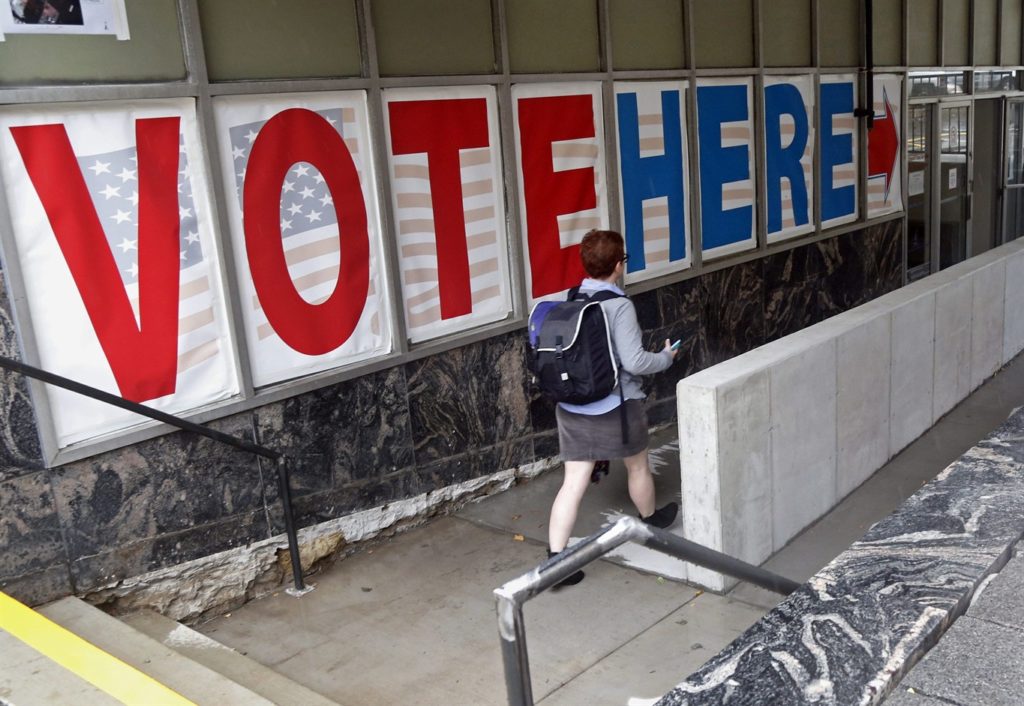
Alabama RetailPAC, the Alabama Retail Association’s state political action committee, has made its endorsements in advance of the 2018 campaign cycle. According to their website, “Alabama Retail represents 4,200 members with some 6,000 locations statewide, ranging from small, family owned retail stores to large national chains.” Alabama Retail has two political action committees. Alabama Retail PAC is a state political action committee supported entirely by voluntary contributions of Alabama Retail Association members and their companies. It is extremely important to Alabama’s retail climate that we elect “retail friendly” legislators and fair judges. Alabama Retail Association PAC is the federal political action committee of the Alabama Retail Association. It is registered with the Federal Election Commission as a 501 (c) 6 PAC and operates within the strict conformity of federal election campaign laws. The purpose of Alabama Retail Association PAC is to help elect pro-business candidates to the U.S. Senate and House of Representatives who will work to enact policies and legislation to better America’s retail climate. All executive and administrative personnel of Alabama Retail’s member companies may contribute to Alabama Retail Association PAC. Contributing to Retail Association PAC is a voluntary decision. Only individual, personal contributions are acceptable. “The Alabama Retail Association believes these candidates understand the issues retailers face and that, if elected, these individuals will give retailers’ interests a fair hearing,” said Alabama Retail Chairman Jacob Shevin. The Retail Association closely evaluates each candidate’s record and discusses the ramifications of each race before granting its endorsement. “We are confident these candidates are the best choices for these positions,” said Alabama Retail President Rick Brown. For the state’s constitutional offices, RetailPAC endorses: Governor Kay Ivey* Lieutenant Governor: Twinkle Cavanaugh Attorney General Steve Marshall* Secretary of State John Merrill* State Treasurer: John McMillan For the appellate court races, RetailPAC endorses: Supreme Court Chief Justice Lyn Stuart* Place 1 Associate Supreme Court Justice Brad Mendheim* Place 4 Associate Supreme Court Justice: Jay Mitchell Place 1 Court of Civil Appeals Judge: Christy Edwards Place 2 Court of Civil Appeals Judge Terri Thomas* Place 1 Court of Criminal Appeals Judge: Richard Minor Place 2 Court of Criminal Appeals Judge: Chris McCool Place 3 Court of Criminal Appeals Judge: Bill Cole For the Alabama Senate, RetailPAC endorses: District 2: Tom Butler, R-Huntsville District 4: Garlan Gudger, R-Cullman District 6: Larry Stutts, R-Tuscumbia* District 8: Steve Livingston, R-Scottsboro* District 10: Mack Butler, R-Rainbow City District 12: Del Marsh, R-Anniston* District 13: Randy Price, R-Opelika District 21: Gerald Allen, R-Tuscaloosa* District 25: Ronda Walker, R-Montgomery District 26: John Knight, D-Montgomery District 33: Vivian Davis Figures, D-Mobile* District 34: Jack Williams, R-Wilmer For the Alabama House of Representatives, RetailPAC endorses: District 4: Parker Moore, R-Decatur District 9: Scott Stadthagen, R-Hartselle District 10: Mike Ball, R-Madison* District 12: Corey Harbison, R-Cullman* District 14: Tim Wadsworth, R-Arley* District 16: Kyle South, R-Fayette* District 19: Laura Hall, D-Huntsville* District 22: Ritchie Whorton, R-Owens Cross Roads* District 27: Wes Kitchens, R-Arab District 30: Robert McKay, R-Ashville District 31: Mike Holmes, R-Wetumpka* District 32: Barbara Boyd, D-Anniston* District 33: Ron Johnson, R-Sylacauga* District 39: Ginny Shaver, R-Leesburg District 42: Jimmy Martin, R-Clanton* District 45: Dickie Drake, R-Leeds* District 48: Jim Carns, R-Birmingham* District 49: April Weaver, R-Alabaster* District 55: Rod Scott, D-Fairfield* District 56: Louise Alexander, D-Bessemer* District 58: Rolanda Hollis, D-Birmingham* District 60: Juandalynn Givan, D-Birmingham* District 64: Harry Shiver, R-Bay Minette* District 65: Elaine Beech, D-Chatom* District 67: Prince Chestnut, D-Selma* District 69: Kelvin Lawrence, D-Hayneville* District 73: Matt Fridy, R-Montevallo* District 76: Thad McClammy, D-Montgomery* District 77: Malcolm Calhoun, D-Montgomery District 82: Pebblin Warren, D-Tuskegee* District 85: Dexter Grimsley, D-Newville* District 87: Jeff Sorrells, R-Hartford District 88: Jeremy Arthur, R-Prattville District 91: Rhett Marques, R-Enterprise District 97: Adline Clarke, D-Mobile* District 102: Willie Gray, R-Citronelle District 105: Chip Brown, R-Mobile Alabama Retail Association PAC endorses these federal candidates: 2nd District: U.S. Rep. Martha Roby, R-Montgomery* 4th District: U.S. Rep. Robert Aderholt, R-Haleyville* *Incumbent
Publix supermarket suspends political giving amid anti-NRA protest

Survivors of the Parkland school shooting lay down in “die ins” at two Publix supermarkets Friday to protest the chain’s support for a gubernatorial candidate aligned with the National Rifle Association, as the company announced a suspension of political contributions. The students from Marjory Stoneman Douglas High School shouted “USA, not NRA!” and caused brief delays at the checkout as customers navigated carts around them on the floor. Pro-NRA counter-protesters also showed up at one store, and two men almost came to blows before police intervened. “A lot of people don’t support who Publix is supporting,” said Haylee Shepherd, a 15-year-old sophomore at Stoneman Douglas, who joined 13 fellow protesters on the floor for about 10 minutes at one of the stores. “It’s going to reflect on them as a brand and people shopping there.” Publix has been criticized by the students for supporting Agriculture Commissioner and gubernatorial candidate Adam Putnam, a Republican who has called himself a “proud NRA sellout.” The activists have called for a boycott of the supermarket. Publix announced earlier this week that it would “reevaluate” its donations amid the outcry. In another statement Friday, company spokeswoman Maria Brous said the chain would halt its contributions for now as it continues that reevaluation. Senior David Hogg, one of the most vocal student activists for gun reform and one of the founders of March for Our Lives, helped organize the protest. It came a week after 10 were killed at a high school in Santa Fe, Texas, and the same day that authorities said an Indiana middle school student opened fire inside his science classroom, wounding a classmate and a teacher. At one point, a counter protester, Bill Caracofe, stuck his middle finger an inch from Hogg’s face outside the grocery store just a few miles from the school where 17 of Hogg’s classmates and teachers were gunned down. “There are millions and millions of people who don’t worship everything that comes out of his mouth,” said Caracofe, who joined about a dozen NRA supporters who counter-protested inside the store. He said the students’ anger toward Publix should be directed at the sheriff’s office and school district for failing to protect them. Hogg said such reactions are common, saying the media has falsely portrayed him as someone who wants to seize guns. He said he supports the Second Amendment but wants tighter regulations, universal background checks and training for people who own AR-15s and similar semi-automatic rifles. Publix has been a strong Putnam supporter. Campaign finance records show that Publix, its top executives and board members, and their family members have donated more than $750,000 altogether to Putnam or his political committee. A former top Publix executive who is related to the chairman of Putnam’s committee has donated an additional $65,000. The suspension announced Friday applies only to money from the company, which has given $413,000 to Putnam over about three years. The supermarket chain is one of a long line of Florida corporations that has helped bankroll Putnam’s candidacy. Over the last three years Putnam has also gotten substantial financial help from Walt Disney Co., Florida Power & Light and U.S. Sugar. Disney has given more than $800,000 to Putnam’s political committee, including a $50,000 check it gave him earlier this month. Publix said it supports candidates focused on building the economy. “We regret that some of our political contributions have led to an unintentional customer divide instead of our desire to support a growing economy in Florida,” the company said in a statement. Republished with permission from the Associated Press.
Kay Ivey touts tax cut that’s modest at best
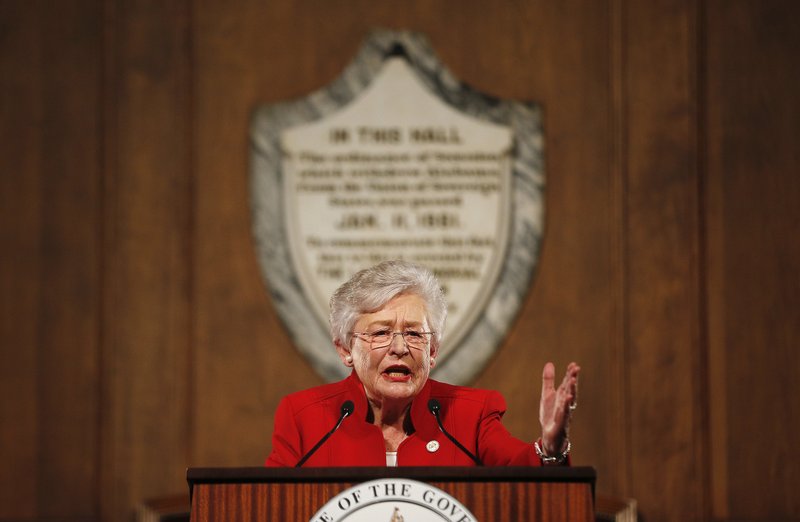
Alabama Gov. Kay Ivey’s campaign is touting in an ad and email to supporters that as governor she signed the largest middle-class tax cut in 10 years, a claim that is true. However, the income tax cut is also modest at best. Ivey, who became governor last year, is stressing her record in office as she faces Huntsville Mayor Tommy Battle, evangelist Scott Dawson and state Sen. Bill Hightower in the Republican gubernatorial primary on June 5. Here’s a look at the facts behind the ad: Ivey Ad: “Just like Trump, Kay Ivey just signed the largest state tax cut for middle-class families in over a decade,” the announcer says in the radio spot by Ivey’s campaign. In a fundraising email titled, “how I’m fighting for you,” Ivey’s campaign wrote that she “secured the largest middle-class tax cut in over a decade.” The Facts: It is the largest middle-class tax cut in over a decade, but the 182,000 tax payers who qualify for it will only see a modest change of an average of $21.97 annually. The measure, which Ivey signed into law this year, was sponsored by Republican Senate President Pro Tem Del Marsh of Anniston. It allows more taxpayers to take the maximum standard deduction on their state income taxes. During debate on the bill, the Legislative Services Agency estimated, based on information about prior year returns from the Alabama Department of Revenue, the tax cut is collectively worth $4 million and would impact 182,000 tax returns. Marsh has described the tax cut as aimed at working class households. Republished with the permission of the Associated Press.


